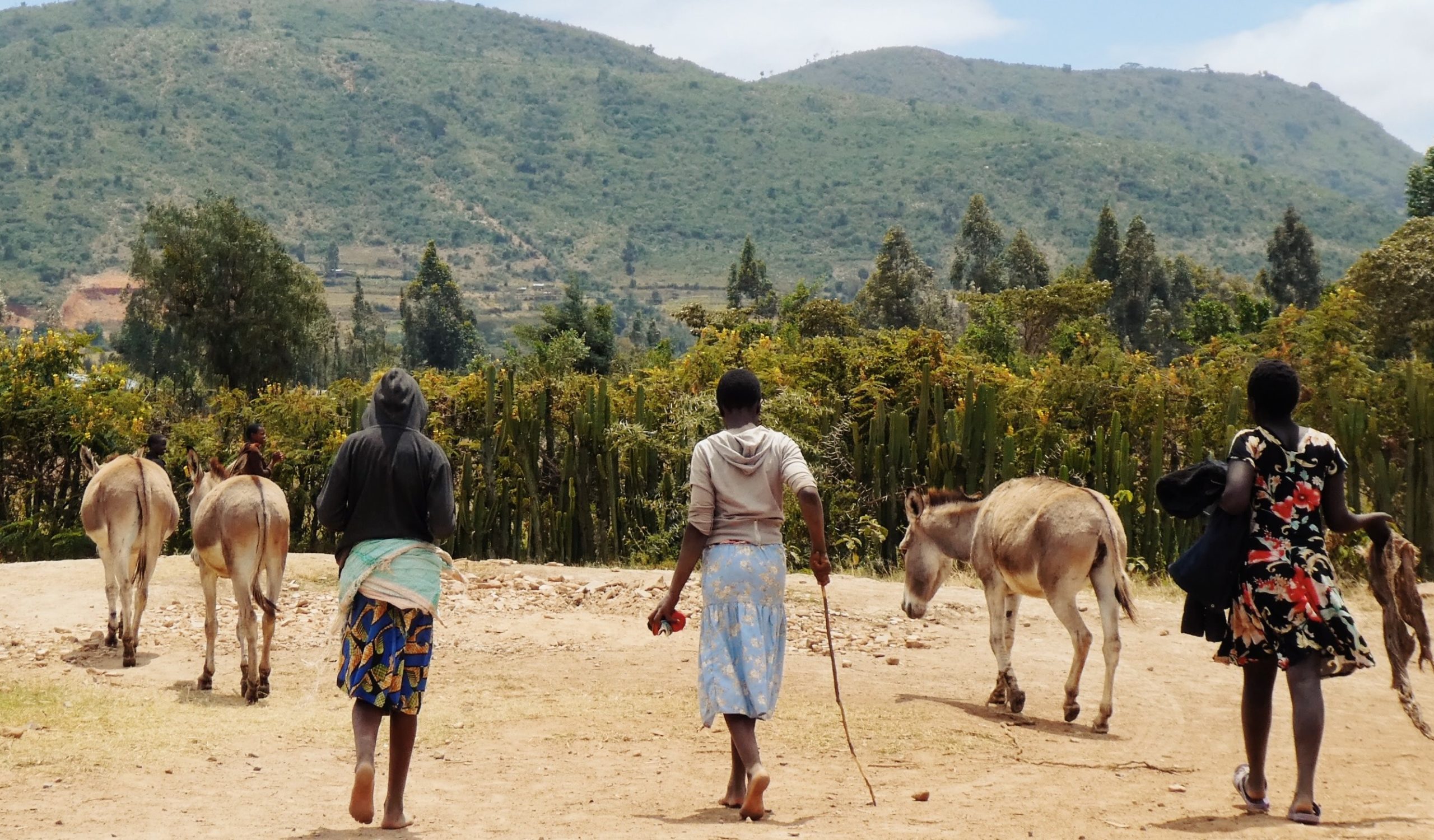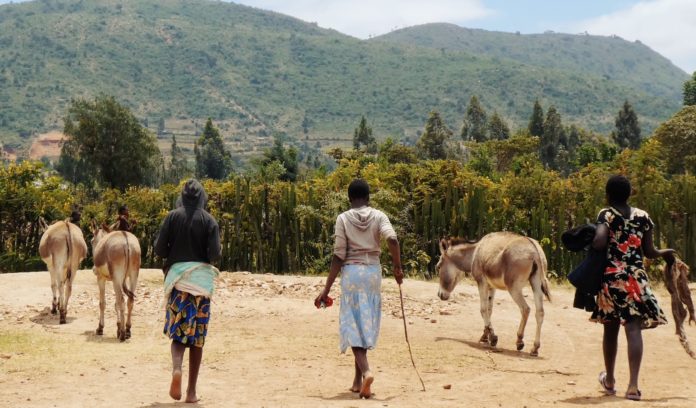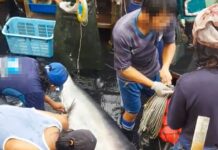By Okong’o Oduya
Busia County, Kenya: Maryline Njeri Okoba is director of Empowered Girls Initiative (EGI), an organization that works with teenage mothers in Busia town. The organization supports teenage mothers with school fees, school materials, mentorship and skill training to be able to fend for themselves and their children.
Okoba reveals how the pandemic has exposed gaps to most of the communities which saw a surge in teenage pregnancies.
She says most of these girls get pregnant between 14-17 years as a result of curiosity, rape, peer pressure, poverty and they end up being rejected by their family members.
Some end up dropping out of school because of ridicule and shame leading them to experience psychological torture as they don’t know who to reach out to.
I met Catherine Pamba* not her real name. She is one of the beneficiaries of EGI and a teen mother who was impregnated at the age of 16.
According to Catherine, she was introduced to a relationship by a friend, and her effort to refuse it sounded abnormal amongst her peers. She later succumbed to peer pressure as she was assisted to get a boyfriend.
“One day I was invited by my new boyfriend on a Saturday, I went to visit this man and reaching to his house the man closed the door. I was uncomfortable and I requested to leave but the guy was adamant and instead went violent, grabbed me, and forced himself on me, I was slapped and when he was through he opened the door and told me to go” narrates Catherine.
Catherine expalins her ordeal “Confused as I was I picked up myself and went home, took a shower, and tried to forget about what had happened to me. Few months down the line I noticed I hadn’t seen my monthly period and that is when I realized I was pregnant. I started isolating myself so that nobody could notice the changes in my body and as time flies the pregnancy was growing my mother noticed it and asked me about it and went ahead to tell my father, he was so furious and chased me from home but I refused to leave until I gave birth.”
“My father refused to take me back to school and that is when I resorted to doing odd jobs until EGI came to my rescue and took me back to class” she says.
Pamba stayed at home for one and a half years. Through the help of EGI, she is back in school in form three at a local Secondary School in Busia. She was forced to transfer to a different school for fear of rejection, emotional and psychological torture from those who knew her. She is picking up well, she is confident and working hard to achieve her dream.

Pregnancy is a natural developmental process among women and girls; however, evidence shows that a significant portion of adolescent pregnancies is unwanted or mistimed in many countries in Sub-Sahara Africa.
These pregnancies present a great public health burden in Kenya and entire Sub-Saharan Africa. Carrying a baby and becoming a mother not only creates physical changes but also mental changes for these girls.
Roseline Wandaki, the founder of Fight Depression and Stress (FIDS) based in Busia County says most teenage mothers are more likely to experience significant levels of stress which can lead to mental health disorders especially after childbirth.
Roseline advises and counsels girls and women survivors who have experienced gender-based violence in Busia saying most new mothers experience baby blues
“Baby blues is a feeling of sadness or moodiness that many women experience after giving birth. They typically last two weeks” says Roseline.
These symptoms include mood swings, anxiety, sadness, being overwhelmed, difficulty concentrating, and difficulty sleeping among other experiences.
She further reveals that if a teen mother develops complications during birth or gives birth pre-term, she may be prone to depression although the risks may reduce if the mother had a supportive relationship with her close family members and the baby’s father.
Roseline explains “Among the things we do is to advise and encourage these teenage mothers on how to address the challenges they face after they have given birth. We let them know that despite the challenges they may go through they need to come out and speak about them and find a way to address them, running away from them does not offer a solution.”
“Teenage motherhood does not mean a young woman will not be successful in life. The most important thing is to consider what other young mothers before them have faced related to health and finance and eventually, they come out of what they were experiencing” she explains.
Nelly Asere Apollo is from the Collaborative Center for Gender and Development (CCGD), a local organization in Busia County dealing with gender-based violence related cases. Nelly says inorder to avoid a situation where teenage mothers develop complications due to stress caused by lack of finances among other causes, they empower them through life skill training and finances to start their own business after the training.
According to her, in most cases, these girls are lured into sexual activities by men who promise them goodies and before they realize they are into another pregnancy, before reaching the age of 18 which may lead to depression.
She confirmed that they have so far trained 100 survivors with entrepreneurship skills on how to start, manage and run their business to take care of themselves economically adding that they have partnered with MasterCard Foundation to fund the trainees once the money will be out through a program named ‘Jasiri’.
Judy Oricho is the director of Awino Love Foundation handling issues on good health and wellbeing campaigns among teenage pregnancies and mothers in Nyanza and the Western region.
According to Judy, deterioration of culture and negligence from parents is contributing to mental health challenges among girls after they have given birth, calling upon the community to play its role in taking care of the girl child to prevent them from early pregnancies and motherhood.
“Efforts to address teenage pregnancies and other sexual and reproductive health matters in most cases are hampered by parents, religious leaders, and other stakeholders despite the mounting evidence that young people are initiating sex earlier than in the past,” she noted.
She says most girls discontinue their education which contributes to harsh life ahead of them leading them to mental disturbance especially when they think about how to look after their newborn without any income adding that teenage parents often don’t complete higher levels of education. They often have more restricted economic opportunities than older parents advising them not to give up in life just because they got pregnant early.
“Teen pregnancies are a major challenge to economic development because they deprive our young girls of the opportunity to further their education and attain their career goals. It also exposes them and their children to major health risks,” she notes.
According to Kenya Data and Health Survey 2014 (KDHS)report, more than 13,000 teenage girls drop out of school annually because of pregnancy. This is a red flag on the girls’ education, health, and opportunities not to mention a failure on society as a whole.
When COVID- 19 struck, cases of teen pregnancies in Busia County have increased. Most of these were due to defilement. The County registered a total of 2,550 teenage pregnancies. According to County Children’s Officer Esther Wasige, the closure of schools due to the coronavirus pandemic exposed schoolgirls to more risk especially those living in the border towns of of Uganda, Malaba and Busia associating these cases to limited access to programs directed at protecting children’s rights.
She revealed that Busia is still among the top ten counties that have a high number of teenage pregnancies.
 Marian Murunga Programs Coordinator at Busia Border Hub, mental health among teenage mothers is caused by poverty and lack of proper treatment during and after birth.
Marian Murunga Programs Coordinator at Busia Border Hub, mental health among teenage mothers is caused by poverty and lack of proper treatment during and after birth.
Murunga says, most of these pregnancies take place in villages or in slum areas where there is poor or lack of proper medical facilities to address some of the challenges that may face some of these girls when pregnant.
“Youth and families from impoverished communities face many barriers to treatment, which may explain the disparities in access to mental health care. Mental health services in urban and rural communities are often inadequate or insufficient to meet the mental health needs of low-income youth, particularly those from families that rely on public or community-based health care services.”
“As a result, many youths receive mental health services in the primary care setting; however, primary care providers vary in their expertise and ability to treat mental health disorders in adolescents,” she explained.
To reduce cases of the mental problem in Busia caused by the poor living standard as a result of lack of income, Murunga says they are partnering with other stakeholders in the county, to offer training to teenage mothers to equip them with skills that will enable them to start their own business to earn a living.
According to Mural Nyangaga who is a Clinical Psychologist, says trauma from sexual experience through defilement from people they know contributes to teenage motherhood.
She says domestic violence between them and their baby daddies, most of these teenage mothers are abandoned, and when they dare ask for any favors from them they get beaten.
“With lack of finances to sustain themselves for the basic needs they are left with no option but to think of suicidal ideas since all they get to think about are their problems and how to solve them” says Mural.
Mural notes that with the entire burden on the girl, some of them develop postpartum depression which is a depression that occurs after childbirth, and if not well taken care of, they have a greater risk of developing major depression later on in life. Symptoms might include insomnia, loss of appetite, intense irritability, and difficulty bonding with the baby.
Other than economic empowerment to these teenage mothers, Mural says there is a need for them to get psychosocial support to help them cope with the daily life challenges, they need someone to walk them through the journey among other measures such as enrolling in vocational training for skills training like tailoring whose market has really grown.
She advises them to share what they are going through with a trusted person and never look down upon themselves.
“We are human and we are prone to mistakes, learn from your mistake and make yourself a superwoman at the end of the day. Talk to someone you trust, the advice you will get will make you a strong woman to face the challenges you are facing,” she advised.
According to World Health Organization, pregnancy, and childbirth complications are the leading cause of death among girls aged 15–19 years globally. Teenagers who give birth often face higher rates of poverty and domestic violence later in life due to misogynistic cultural norms and threadbare social safety nets.














